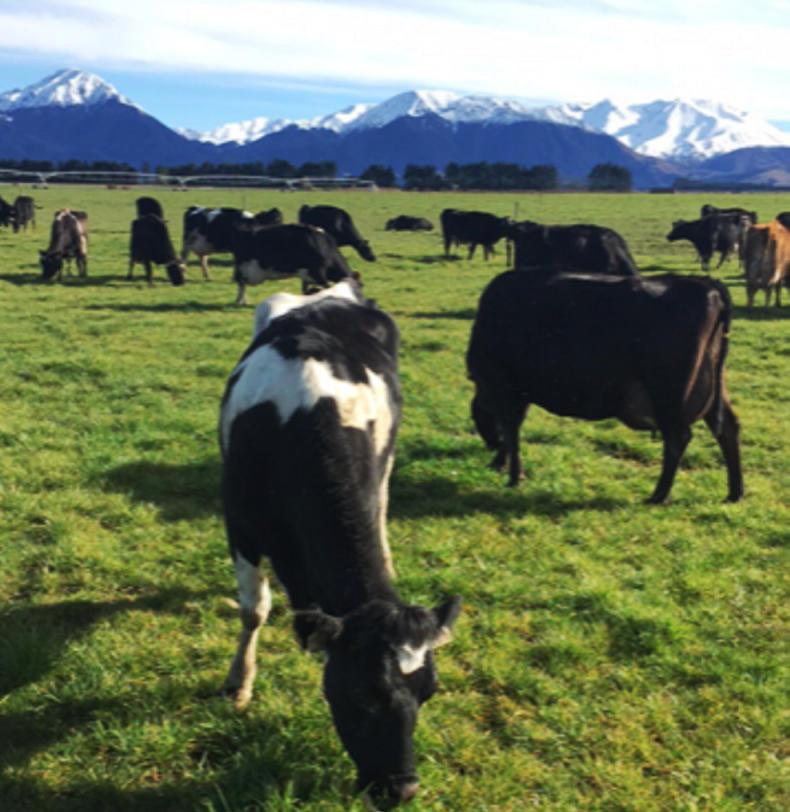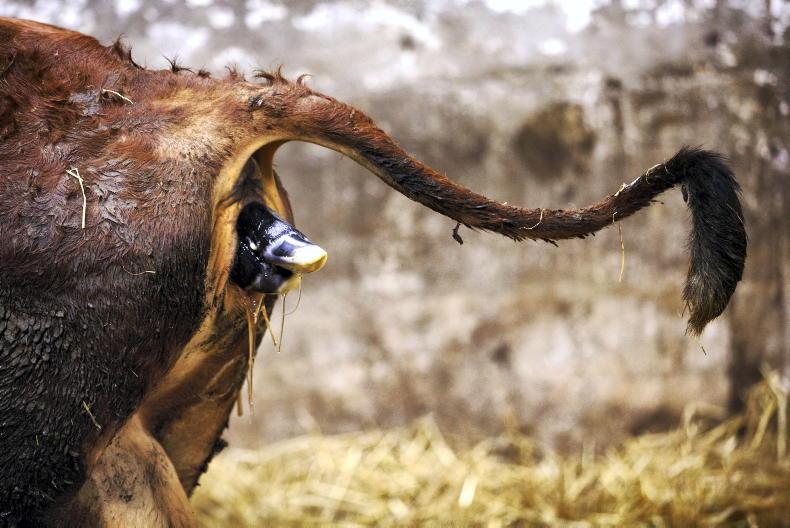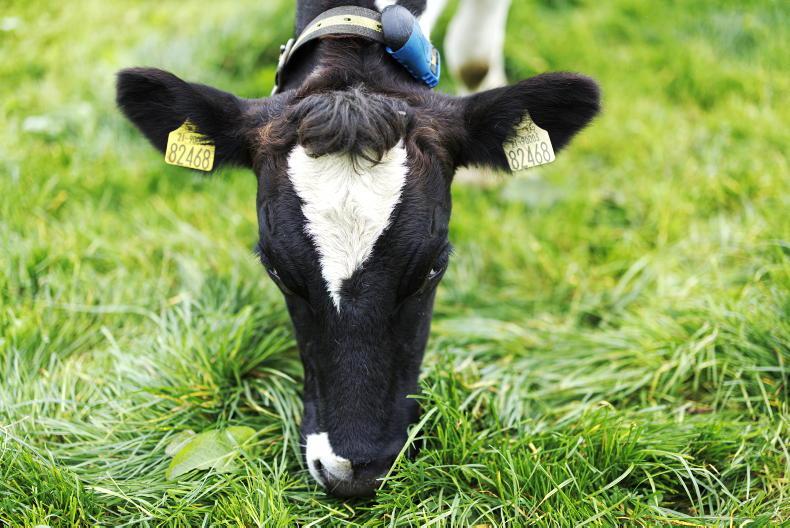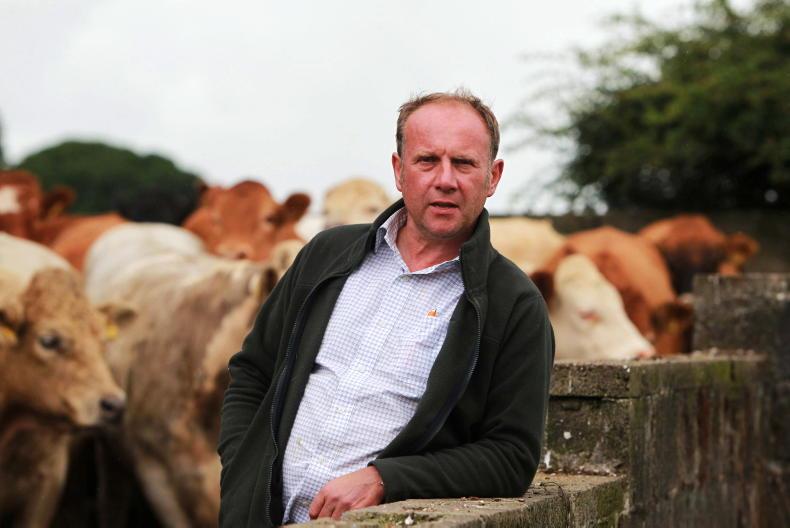Having spent the last number of months working in New Zealand and having listened to friends of mine who have also been working on dairy farms across the South Island, I have come to think, what is it that makes dairying here that bit more simplistic than home, and what is it that has stood out the most?
Organisation and communication
Firstly, farmers tend to be well organised – when something is needed, you know exactly where to find it. Yards and facilities are well presented, neat and tidy.
Communication on farm is excellent – with large teams it has to be.
Mistakes are not allowed and rarely occur as you cannot afford to lose time when running in excess of 200 cows per labour unit, which is the norm on many New Zealand dairy farms.
However, I believe it is important to allow some small mistakes to take place as it allows staff to learn from practical experience. "I listen I forget, I see I remember, I do I understand".
Team meetings are held on a regular basis where relevant topics and issues are discussed in detail and explained so everyone is singing off the same hymn sheet.
Time-keeping
Time is paramount In New Zealand, early starts are standard. "He who rises late must run all day". On my second day of work I arrived three minutes past 8am and I was asked had I a lie-in.
Making the most use of your time is priority. For example, on my host farm, following cows in for milking was not tolerated.
Once cows were out of the paddock, you went getting wires ready for the cows' next feed, then drove ahead of the cows to the yard (with your motor bike, which is cheaper to run than a quad and also safer as it’s more difficult to turn over) and started another job.

It was expected to have the last cow locked into the yard by the time the first few milked cows were ready to go back to grass. With cows, if you were five minutes too late/too early you could expect to have questions asked.
Barbecues
If you’re invited to a barbecue for 7pm, you wouldn’t arrive 7.30/8pm Irish time! This is a slight taster as to how important time is down under.
Talking about barbecues, it’s very common out here for small barbecues to be held after farm walks or open days, free gratis, provided for by the local co-op or supplier, for example. A great idea to add to the social aspect of the gathering.
Work smarter, not harder
Quite simply the most important thing I have learned since I arrived in Canterbury is to work smarter, not harder. A lesson for life.
We do love hardship back home. Farming here in New Zealand for me has been nowhere near as close to the physically challenging demands at home considering our numbers.
The workload is far more straightforward here. Animal-handling facilities are far superior, with curved bends approaching cattle crushes resulting in excellent animal flow. There are no cubicles to clean, no lime to spread, no houses to clean out (I haven’t held a pike in five months), no scrapers to fix, and no ration to bucket around. The cows, quite simply, do all the work.
Fertiliser is spread by contractors on many farms, saving us another job, and spread with the help of a GPS with near 100% accuracy, another saving.

This fertiliser is bought in bulk. Therefore, no bags to pay for, no bags to open, no bags to put in the bin. Your hands would go soft.
Women in agriculture
It’s brilliant to see so many women involved in the dairy industry in New Zealand, a true eye opener, with three females out of six on my farm, for example.
It’s much more the norm for women to carry out the so-called "man's work" on dairy farms across New Zealand. This is simply due to a different outlook and mindset.
At home we should encourage more women to enter the dairy industry and this all starts at a young age by treating both boys and girls the same, involving them equally.
As my grandfather Sean Twomey would always say, "If you don’t do it young, you won’t do it old". A little encouragement can go a long way.
Surprisingly, it was also great to see numerous amounts of people working on dairy farms in New Zealand who had never grew up on a dairy farm, or had no farming background at all.
It would be great to see more of this at home. Again, encouragement is key.
Progression opportunities – steps up the ladder
New Zealand has a fantastic progression system in place;
1. Farm Assistant.2. Herd Manager.3. Second in Command (2IC).4. Farm Manager.5. Contract milker/Share-milker.6. Farm Owner.Possibly back home we could do more to provide young people with opportunities to progress sooner, with ideas such as small percentage cow ownership in the business – therefore motivating staff and giving them a goal to achieve as now decisions affect their pocket also.
Reward staff
Finally, some farms I have encountered in New Zealand are great at rewarding staff throughout the year.
For example, a bonus after the busy calving period, an animal for the freezer, a box of beer for Christmas.
These are all simple little ideas I hear take place on some farms which can help to show your appreciation for the work your staff have carried out during the year, bearing in mind you are the one with the bountiful milk cheque in your pocket at the end of the day.
This is the Kiwi way of showing gratitude, and a possible means to entice staff members to stay on for another year knowing your generosity.
These have been some of my key learnings and observations while working and travelling the lovely New Zealand.
I would like to thank FBD for sponsoring me with the travel bursary which I am most appreciative of, and thanks to UCD and Karina Pierce for organising and providing us with the opportunity to win the bursary.
Read more
Student blog: working on a 1,250 head dairy herd in New Zealand
Student blog: milking on a NZ farm where a helicopter spreads fertiliser
Having spent the last number of months working in New Zealand and having listened to friends of mine who have also been working on dairy farms across the South Island, I have come to think, what is it that makes dairying here that bit more simplistic than home, and what is it that has stood out the most?
Organisation and communication
Firstly, farmers tend to be well organised – when something is needed, you know exactly where to find it. Yards and facilities are well presented, neat and tidy.
Communication on farm is excellent – with large teams it has to be.
Mistakes are not allowed and rarely occur as you cannot afford to lose time when running in excess of 200 cows per labour unit, which is the norm on many New Zealand dairy farms.
However, I believe it is important to allow some small mistakes to take place as it allows staff to learn from practical experience. "I listen I forget, I see I remember, I do I understand".
Team meetings are held on a regular basis where relevant topics and issues are discussed in detail and explained so everyone is singing off the same hymn sheet.
Time-keeping
Time is paramount In New Zealand, early starts are standard. "He who rises late must run all day". On my second day of work I arrived three minutes past 8am and I was asked had I a lie-in.
Making the most use of your time is priority. For example, on my host farm, following cows in for milking was not tolerated.
Once cows were out of the paddock, you went getting wires ready for the cows' next feed, then drove ahead of the cows to the yard (with your motor bike, which is cheaper to run than a quad and also safer as it’s more difficult to turn over) and started another job.

It was expected to have the last cow locked into the yard by the time the first few milked cows were ready to go back to grass. With cows, if you were five minutes too late/too early you could expect to have questions asked.
Barbecues
If you’re invited to a barbecue for 7pm, you wouldn’t arrive 7.30/8pm Irish time! This is a slight taster as to how important time is down under.
Talking about barbecues, it’s very common out here for small barbecues to be held after farm walks or open days, free gratis, provided for by the local co-op or supplier, for example. A great idea to add to the social aspect of the gathering.
Work smarter, not harder
Quite simply the most important thing I have learned since I arrived in Canterbury is to work smarter, not harder. A lesson for life.
We do love hardship back home. Farming here in New Zealand for me has been nowhere near as close to the physically challenging demands at home considering our numbers.
The workload is far more straightforward here. Animal-handling facilities are far superior, with curved bends approaching cattle crushes resulting in excellent animal flow. There are no cubicles to clean, no lime to spread, no houses to clean out (I haven’t held a pike in five months), no scrapers to fix, and no ration to bucket around. The cows, quite simply, do all the work.
Fertiliser is spread by contractors on many farms, saving us another job, and spread with the help of a GPS with near 100% accuracy, another saving.

This fertiliser is bought in bulk. Therefore, no bags to pay for, no bags to open, no bags to put in the bin. Your hands would go soft.
Women in agriculture
It’s brilliant to see so many women involved in the dairy industry in New Zealand, a true eye opener, with three females out of six on my farm, for example.
It’s much more the norm for women to carry out the so-called "man's work" on dairy farms across New Zealand. This is simply due to a different outlook and mindset.
At home we should encourage more women to enter the dairy industry and this all starts at a young age by treating both boys and girls the same, involving them equally.
As my grandfather Sean Twomey would always say, "If you don’t do it young, you won’t do it old". A little encouragement can go a long way.
Surprisingly, it was also great to see numerous amounts of people working on dairy farms in New Zealand who had never grew up on a dairy farm, or had no farming background at all.
It would be great to see more of this at home. Again, encouragement is key.
Progression opportunities – steps up the ladder
New Zealand has a fantastic progression system in place;
1. Farm Assistant.2. Herd Manager.3. Second in Command (2IC).4. Farm Manager.5. Contract milker/Share-milker.6. Farm Owner.Possibly back home we could do more to provide young people with opportunities to progress sooner, with ideas such as small percentage cow ownership in the business – therefore motivating staff and giving them a goal to achieve as now decisions affect their pocket also.
Reward staff
Finally, some farms I have encountered in New Zealand are great at rewarding staff throughout the year.
For example, a bonus after the busy calving period, an animal for the freezer, a box of beer for Christmas.
These are all simple little ideas I hear take place on some farms which can help to show your appreciation for the work your staff have carried out during the year, bearing in mind you are the one with the bountiful milk cheque in your pocket at the end of the day.
This is the Kiwi way of showing gratitude, and a possible means to entice staff members to stay on for another year knowing your generosity.
These have been some of my key learnings and observations while working and travelling the lovely New Zealand.
I would like to thank FBD for sponsoring me with the travel bursary which I am most appreciative of, and thanks to UCD and Karina Pierce for organising and providing us with the opportunity to win the bursary.
Read more
Student blog: working on a 1,250 head dairy herd in New Zealand
Student blog: milking on a NZ farm where a helicopter spreads fertiliser












SHARING OPTIONS